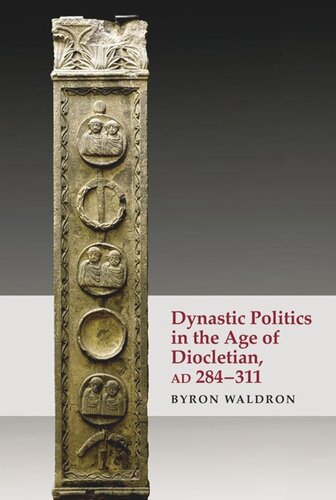

Most ebook files are in PDF format, so you can easily read them using various software such as Foxit Reader or directly on the Google Chrome browser.
Some ebook files are released by publishers in other formats such as .awz, .mobi, .epub, .fb2, etc. You may need to install specific software to read these formats on mobile/PC, such as Calibre.
Please read the tutorial at this link: https://ebookbell.com/faq
We offer FREE conversion to the popular formats you request; however, this may take some time. Therefore, right after payment, please email us, and we will try to provide the service as quickly as possible.
For some exceptional file formats or broken links (if any), please refrain from opening any disputes. Instead, email us first, and we will try to assist within a maximum of 6 hours.
EbookBell Team

4.8
24 reviewsIn AD 293 the Roman world was plunged into a bold new experiment in government. Four soldiers shared the empire between them: two senior emperors, Diocletian and Maximian, and two junior emperors, Constantius and Galerius. This regime, now known as the Tetrarchy, engaged with dynastic power in thoroughly unconventional ways: Diocletian and Maximian presented themselves as brothers despite being unrelated; Diocletian and Galerius repeatedly thwarted the dynastic ambitions of individual Tetrarchs and their sons; the sons themselves were variously hostages, symbols of imperial unity and possibly targets of assassination; and the importance of women to imperial self-representation was much reduced.
This is the first book to focus on the Tetrarchy as an imperial dynasty. Examining the dynasty through the lens of Rome’s armies, it presents the Tetrarchic dynasty as a military experiment, created by a network of provincial career soldiers and tailored to the needs of the different regional armies. Mustering a diverse array of evidence, including archaeology, coins, statuary, inscriptions, panegyrics and invective, the author provides bold new interpretations of Tetrarchic dynastic politics, looking at brotherhood, empresses, imperial collegiality, military politics, hereditary succession and the roles of sons within Roman dynasties.